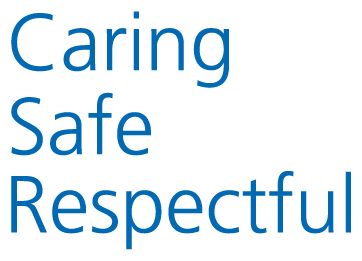On this page you will find lots of information about our service for parents, families and carers.
Vaccines we offer
All primary school aged children in Reception to Year 6 will be offered a seasonal nasal flu vaccination. Any children who are not suitable for the nasal flu spray will be advised of alternative arrangements on how to get their child vaccinated against flu.
More information about the Flu vaccine: https://
All children in Year 8 are offered the HPV vaccine. It is a two-dose schedule and the second dose is given after a minimum of six months, normally in Year 9.
More information about the HPV vaccine: https://
Children aged 13 to 15 (school Year 9) are routinely offered the Men ACWY vaccine in school alongside the three-in-one teenage booster (see below).
More information about the Men ACWY vaccine - https://
The teenage booster, also known as the 3-in-1 or the Td/IPV vaccine, is given to boost protection against 3 separate diseases: tetanus, diphtheria and polio.
More information about the DTP vaccine - https://
As part of the targeted MMR catch-up programme, we offer catch up MMR vaccinations to any children in Year 8 and above.
More information about the MMR vaccine - https://
Dos and Don'ts of Vaccinations
| Vaccines that your child gets at school do... | Vaccines that your child gets at school don't... |
|---|---|
|
Protect you and your child from many serious and potentially deadly diseases |
Do not cause autism – studies have found no evidence of a link between the MMR vaccine and autism |
|
Protect other people in your community – by helping to stop diseases spreading to people who cannot have vaccines |
Do not overload or weaken the immune system – it's safe to give children several vaccines at a time and this reduces the amount of injections they need |
|
Undergo rigorous safety testing before being introduced – they are also constantly monitored for side effects after being introduced |
Do not cause allergies or any other conditions – all the current evidence tells us that vaccinating is safer than not vaccinating |
|
Sometimes cause mild side effects that will not last long – some children may feel a bit unwell and have a sore arm for two or three days |
Do not contain mercury (thiomersal) |
| Reduce or even get rid of some diseases – if enough people are vaccinated | Do not contain any ingredients that cause harm in such small amounts – but speak to your doctor if you have any known allergies such as eggs or gelatine |
Helpful Information to Prepare Your Child
It is helpful if children in secondary schools can wear short sleeves or a vest on the day. However, the team do carry a small supply of T-shirts for children to change into if needed.
Your child will be called for in small groups. Vaccinations will be given while maintaining your child’s privacy and dignity. The nurse administering the vaccine will check your child’s details and explain what is going to happen.
They carry stress toys to help if children are feeling anxious and we also encourage children to play music as a distraction if it helps.
Cinnamon - Digital Consent Form
The electronic consent system is managed by Cinnamon Digital Appliances on behalf of Blackpool Teaching Hospitals NHS trust.
Consent or No Consent needs to be completed by the person with parental responsibility.
The team informs the GP once the vaccination has been given so that the child’s medical record is updated. If you have completed the digital consent, after the team have been into your child’s school, you will be sent a text to say your child has now received their vaccine.
Visit the Cinnamon at www.bthimmunisations.co.uk




